The United States disclosed to AyiboPost that they provided « logistical and transportation support for the delegation » from Kenya during their assessment visit to Haiti in the month of August
The United States is preparing significant support for the multinational security mission that Kenya has volunteered to lead in Haiti. This was revealed by the U.S. Embassy in the country to AyiboPost.
The Kenyan delegation conducted a technical assessment in Haiti from August 20 to 23 to identify adequate support for a potential multinational force, « at the request of the Haitian government, » according to the embassy.
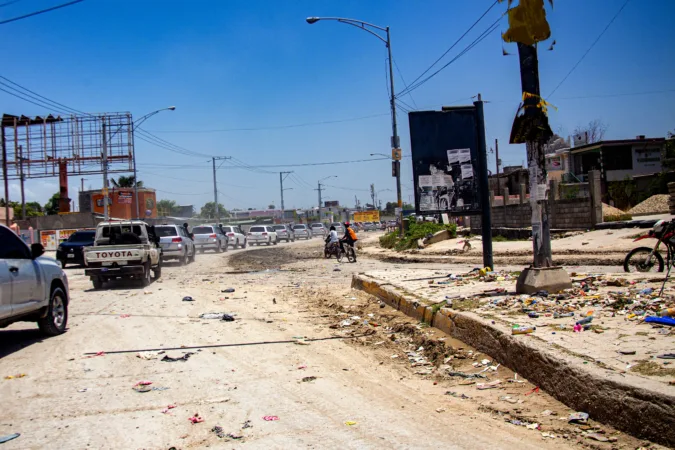
The entry of the Kenyan delegation into Haiti on Sunday, August 20, 2023. | © David Lorens Mentor/AyiboPost
« The technical assessment trip led by the Kenyans in Haiti, along with consultations in New York and Washington, involved representatives from several U.S. government agencies, according to the embassy. The U.S. government provided logistical and transportation support for the delegation, » the diplomatic representation further stated.
The United States is preparing significant support for the multinational security mission that Kenya has volunteered to lead in Haiti.
The U.S. administration is undertaking its own proceedings. It is seeking, according to the embassy, “support from Congress for this initiative and plans to present a resolution to the United Nations Security Council authorizing the deployment, in collaboration with our co-sponsor, Ecuador. The international community plans to provide funding, equipment, training, and personnel.”
« The potential arrival of a Kenyan armed mission in Haiti is fueling heated debates. »
The major powers of influence in Haiti, such as the USA, Canada, and France, do not seem to show much interest in taking the lead in a military or police mission in the country. This is because ‘Haiti is not a priority zone for them,’ says media figure Daly Valet. »
The influential major powers in Haiti, such as the USA, Canada, and France, do not seem to show much interest in taking the lead in a military or police mission in the country
This lack of interest, according to the former adviser to President Jocelerme Privert, « means that they are subcontracting to lesser powers, like Kenya. »
The United Nations Security Council is expected to convene to give the green light to a non-UN intervention in Haiti. AyiboPost cannot confirm the exact date of this meeting: the September agenda of the Council is not yet available.
The international organization, while influential, remains highly criticized in the country. UN soldiers brought cholera to Haiti in 2010. 10,000 deaths and at least 800,000 infections were officially recorded, amidst a backdrop of sexual abuse and dozens of children left behind, with members of the mission as their fathers.
Also read : Retour sur 15 années d’échecs de l’ONU en Haïti
The United Nations’ first intervention in Haiti dates back to February 1993. Over the years, the organization, along with other powerful countries, deployed personnel, advisors, and sometimes armed forces in an attempt to stabilize Haiti.
On October 15, 2017, the United Nations Stabilization Mission in Haiti concluded its intervention. According to the organization, the mandate was a « success. »
This perspective finds few adherents in Haiti, given the country’s situation both before and after the mission’s end. « Like all other UN missions, [Kenya’s intervention] will provide a superficial bandage, » predicts Daly Valet, who, however, believes that the international force will save lives, even though he is against it.
Like all other UN missions, [Kenya’s intervention] will provide a superficial band-aid
Other citizens express a more radical position.
Jameson Bernabe runs Agro 6, a company specialized in distributing local products and an agricultural consulting firm. He categorically opposes the arrival of any foreign force, « whatever it may be. »
The entrepreneur points to the domestic security problems facing Kenya, as well as the diseases, serial rapes, and unnecessary waste of resources from the last foreign military mission in Haiti, led by the UN.
Also read : L’ONU refuse d’assister les enfants abandonnés par les soldats de la MINUSTAH
It is not clear whether this mission will provide equipment to the National Police of Haiti (PNH) with the possibility of recruiting new members and intensive training sessions. There is no indication at present whether it will be a mission to secure the country’s infrastructure or to target the gangs that control the vast majority of Port-au-Prince, as they extend their influence to other regions of the country.
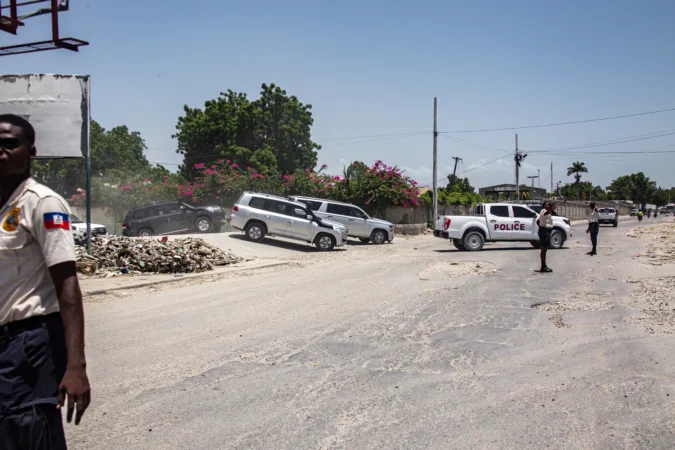
Police officers from the Haitian National Police in the vicinity of Toussaint Louverture National Airport are managing traffic to facilitate the movement of the Kenyan delegation.| © David Lorens Mentor/AyiboPost
The involvement of the 1,500 men of the Haitian Armed Forces (FAd’H) in this dynamic finds little support. Historically in Haiti, the institution enjoyed a prestige linked to the struggles for independence. However, in the early 20th century, during the American occupation, the army of 9,000 men, including 308 generals, was dismantled. In its place, the police took over.
After the end of the occupation, the army was tasked with maintaining public order. However, the institution became involved in various coups, numerous human rights violations, and drug trafficking, leading to its dissolution in 1995.
The involvement of the 1,500 men of the Haitian Armed Forces (FAd’H) in this dynamic finds little support.
While it was reinstated in 2017 under the Jovenel Moïse administration, the army raises suspicions and criticism in Haiti. This is occuring in a context where international powers seem to exclude it from major discussions surrounding security in Haiti.
In a rare public appearance on August 28 at a conference organized by Quisqueya University, the Commander-in-Chief of the Haitian Armed Forces (FAD’H), Jodel Lessage, denounced the « restrictions imposed on the army that have a direct impact on the defense and security of Haitians, the integrity of the territory, and the overall socio-economic situation. »
« We are here, we are available, » continued the commander, highlighting the need for « moral and material means. »
According to the military leader, the army has received support from Ecuador, Mexico, and Argentina for training, as well as substantial equipment assistance from Taiwan.
Even though the army plans to eventually occupy the national territory through four military regions (West, Central, North, and South), « foreign officials do not hide their hostility towards the Haitian military institution, » according to Lessage.
This involvement of the army is gaining supporters among opponents of foreign forces.
« All growing countries usually do so with their own internal security force, » notes Bernabe, who believes that the National Police and the army must « be functional to pave the way for lasting peace in Haiti. »
There is no indication at present whether it will be a mission to secure the country’s infrastructure or to target the gangs that control the vast majority of Port-au-Prince, as they extend their influence to other regions of the country.
Since the violent assassination of former President Jovenel Moïse on July 7, 2021, Haiti has been under the leadership of Ariel Henry, a Prime Minister chosen by the former head of state a few days prior to his death.
Unelected, Ariel Henry suffers from a lack of legitimacy, and most of his government’s actions do not align with the law, according to experts. Despite ongoing protests, the failure to organize elections, and a worsening of the humanitarian and security situation in the country; the head of government, propelled to the helm of the state by a statement from a coalition of foreign diplomatic missions in Haiti, continues to enjoy the collaboration of the international community.
« If the international community deploys a force in Haiti, it shouldn’t be believed that it’s for managing Haitian affairs, » considers the former member of the Haitian Armed Forces, Himmler Rebu.
Unelected, Ariel Henry suffers from a lack of legitimacy, and most of his government’s actions do not align with the law
According to the former colonel known for his anti-imperialist stance, « this intervention could be aimed at organizing elections to put puppets in power. »
The status quo benefits major powers who profit from the massive exodus of Haitian professionals to countries like Canada or the USA. The increased migrations of these high-ranking individuals « would allow them to have better control over the country, » Rebu believes.
Also read : Haïti en danger : l’insécurité pousse les médecins spécialisés à quitter le pays
Doubts persist in Haiti regarding Kenya’s ability to succeed in this mission. This country, known for its interventions, especially in Somalia, lacks the experience or necessary resources, according to experts, to tackle the issue of armed gangs in a Caribbean country like Haiti.
« The Kenyan leaders have sold their dignity, » says Josué Mérilien, the coordinator of the National Federation of ‘Normaliens’ of Haiti (UNNOH).
The union leader discusses the issue of arms trafficking from the USA to Haiti as a key to understanding the ongoing insecurity. He calls on Kenya to « reconsider this decision that puts them directly against the Haitian Republic. »
According to reports from the US Department of Justice, the firearms intercepted in crimes in Haiti mostly originate from the USA.
Also read : Les armes des États-Unis alimentent l’insécurité en Haïti
The question of money might also shed light on Kenya’s interest, suggest analysts. According to Daly Valet, this country could be interested in a mission in Haiti because it would bring in « a lot of money, » which could help « stabilize its currency. »
This country, known for its interventions, especially in Somalia, lacks the experience or necessary resources, according to experts, to tackle the issue of armed gangs in a Caribbean country like Haiti.
In the meantime, Haiti lives to the beat of the violent massacre of its citizens. Gangs continue to kill, loot, and expand their territory with impunity.
Former journalist, Clarens Renois, takes a stand on behalf of the political platform UNIR.
He says he cannot « technically oppose » a foreign intervention, as it is a matter decided at the level of the United Nations Security Council.
« We have an untenable situation in Haiti, says Renois. The tragedy in Carrefour-Feuilles [attacked by gangs from Grand Ravine] is indicative of the total chaos where the population is at a breaking point and left to fend for itself in an unfortunate context of complete inaction by the state. »
Although he is not opposed to it, the former leader of the HPN Haiti media demands to know « the duration of the mission, its scope, its legal implications. »
This intervention should, Renois continues, provide support to the (Haitian National Police) to enable it to « take over after the foreign force has withdrawn from our soil. »
By Fenel Pélissier, Jérôme Wendy Norestyl et Junior Legrand
Wethzer Piercin et Widlore Mérancourt Contributed to this report.
English translation by Sarah Jean.
Cover image: « Brazilian MINUSTAH peacekeepers held a ceremony to mark the end of their operations and the beginning of their withdrawal from Haiti before the mission’s closure on October 15, 2017. » | © Logan Abassi
Stay in touch with AyiboPost through :
▶ Our Telegram canal : click here
▶ Our WhatsApp Community : click here

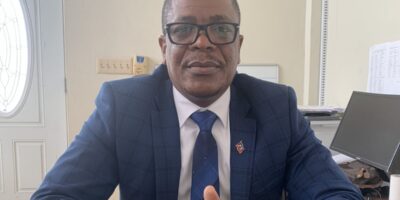
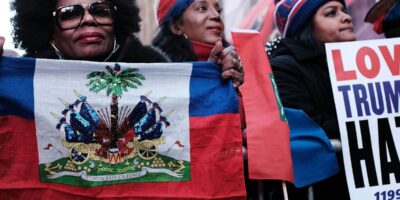
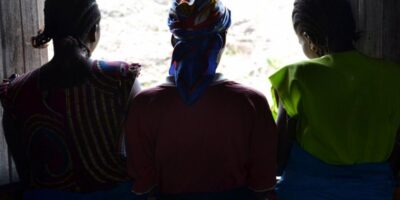
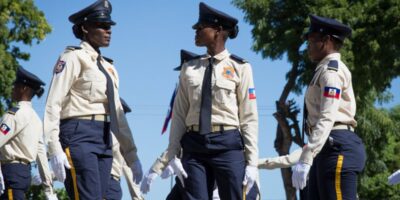

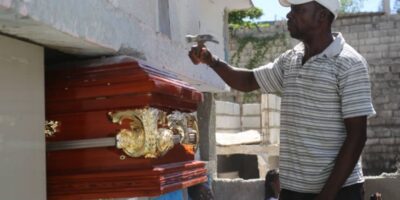
Comments